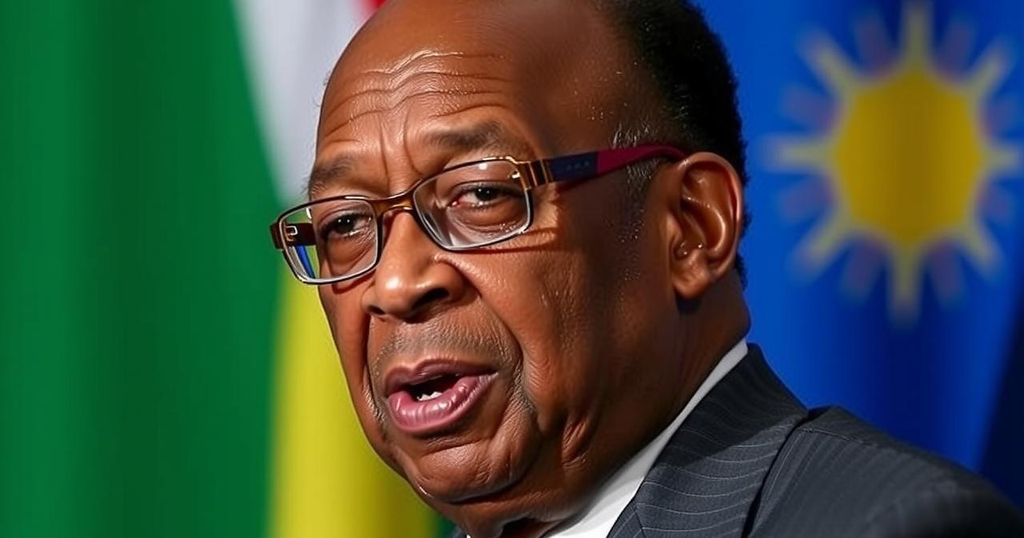Botswana President Acknowledges Election Defeat, Signaling End of Six-Decade Rule

Botswana President Mokgweetsi Masisi has conceded defeat in the elections, with preliminary results indicating a loss for the ruling Botswana Democratic Party (BDP) after 60 years in power. The opposition coalition, Umbrella for Democratic Change (UDC), led by Duma Boko, is set to take control, having won a majority of the parliamentary seats. Despite being expected to win, the BDP suffered significant losses, with Masisi acknowledging the electorate’s choice in his press conference.
Botswana’s President Mokgweetsi Masisi has officially acknowledged his defeat in the recent election, as preliminary results indicated a significant loss for his party, the Botswana Democratic Party (BDP), which had maintained power for nearly sixty years. Reports from both the independent Mmegi newspaper and state radio indicated that the ruling party suffered a considerable defeat, with the opposition coalition, known as the Umbrella for Democratic Change (UDC), leading in a majority of the constituencies. The leader of the UDC, Duma Boko, is poised to assume the presidency, although he has yet to make a public statement regarding the election results. During an official press conference, President Masisi expressed his intent to respect the electorate’s decision, stating, “Although I wanted to stay on as your president, I respect the will of the people and I congratulate the president-elect. I will step aside and I will support the new administration.” Despite predictions indicating a competitive election, the BDP was still anticipated to retain its dominance. The BDP has governed Botswana since the nation gained independence from British colonial rule in 1966. According to Mmegi, the election results from 36 out of the 61 total constituencies revealed that opposition parties had collectively secured over half of the parliamentary seats necessary to elect the president. Furthermore, state radio echoed these findings, reporting that the BDP had retained only one seat, as the UDC claimed 25. To achieve a parliamentary majority, a party must secure at least 31 seats, highlighting the electoral shift in Botswana’s political landscape. The nation, renowned for its stability and economic prosperity attributed to its diamond resources, faces challenges such as a downturn in the diamond market, leading to increased pressure on its revenue streams and the imperative to diversify its economy.
The political landscape in Botswana has been defined by the dominance of the Botswana Democratic Party (BDP), which has presided over the nation since its inception following independence from Britain in 1966. With a small population of approximately 2.3 million, Botswana has leveraged its substantial diamond wealth to maintain a stable and prosperous economy, providing its citizens with free healthcare and education. Nevertheless, recent declines in the diamond market have posed significant challenges, prompting discussions regarding the need for economic diversification.
The recent elections in Botswana mark a significant transition in the country’s political framework, as the opposition coalition has successfully unseated the long-standing ruling party, the Botswana Democratic Party, which has governed for nearly six decades. President Masisi’s concession reflects a respectful adherence to the democratic process, emphasizing the importance of responding to the electorate’s will. As Duma Boko prepares to assume the presidency, the future trajectory of Botswana’s governance and economic strategy will be closely monitored, particularly in light of ongoing economic challenges.
Original Source: www.theguardian.com








